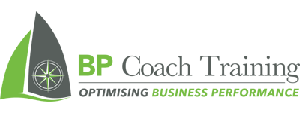Taking the coaching approach in business is key in our day-to-day activity. Coaching doesn’t always have to be that time consuming as many leaders have expressed. Read this article on how one can leverage “in the moment” coaching approach…
“In the Moment” Coaching Approach
“In the moment” coaching delivers real, tangible business results. You know that, but do the leaders in your organization? If people don’t associate taking a coaching approach to day-to-day business challenges with making a positive, impactful difference that will hit the bottom line, they probably aren’t going to do too much of it. That’s a problem, for everyone, because it can seriously limit the positive impacts that coaching can deliver in your organization.
So, how exactly do we help people see that “in the moment” coaching is so much more than simply an approach for developing people?
Data helps, of course. One of the key findings from a recent RedThread Research study found that an organization’s culture can drive both organizational and individual performance, especially when it includes fairness, feedback and a future-focus (you can read more on that here). The report also highlighted how manager capability influences individual performance—and how it’s critical for organizations to invest in the capability of their managers. To do this, one of the recommendations RedThread Research provided was to build managers’ coaching skills.
However, simply telling people to coach sends the wrong message. You will need to take a coaching approach to illuminating how coaching positively impacts business results. Here are a few ideas on how to do that:
Recommendation #1: Role Model
Modeling is a powerful tool—it’s natural for people to rely on others around them for cues on how to think, feel and act. That’s amplified when those cues come from people you know, people you admire or people you’re around every day—also known as, your peers and leaders. The art of persuasion may just be consistently taking a coaching approach to everyday business issues and opportunities.
For example, one client shared with us her experience of taking a coaching approach to implementing a new system. Ashley* was heading a project to move a task that was previously housed in spreadsheets to a new online software. When Ashley first presented this idea to a team of leaders, she and her team were met with some opposition, with some leaders saying that it wasn’t going to work and it would take too much time to roll out. However, Ashley noticed they weren’t being specific with their concerns, so she took a coaching approach to the situation. She asked the leaders: “What about this system is concerning you the most?” and “What’s important to be represented in the system for you?” She wanted to get their feedback in a constructive way, so they knew they were being heard, and Ashley knew how to address their concerns. Through this conversation, Ashley found that the leaders had concerns about security and data integrity, so she further focused on how the system worked, what the goals of the system were and how the data were stored. In the end, this conversation helped the leaders understand the positive outcomes of the system, and they were also more positive when telling others in the company about the change. With the implementation of this system, Ashley’s team will be able to save time and increase productivity in their day-to-day tasks.
Taking a coaching approach to any type of business issue—whether that’s a change management project, a disagreement between peers or to move a business opportunity forward—shows leaders that “in the moment” coaching delivers real business results.
Recommendation #2: Reinforce
We learned in our own research that people tend to have “a-ha” moments for themselves when they reflect on the times they’ve used “in the moment” coaching approaches in conversations and notice the impact that it had. A practical way to do this could be to start team meetings with a coaching moment reflection and ask someone to share a recent time when they took a coaching approach to a business challenge. Encourage the person—and the entire team—to notice the impact on the person or people who were present in the conversation, as well as the broader impacts of the actions that resulted from the coaching.
This is a methodology that is commonly used to reinforce a culture of safety first in companies where safety is a top priority. Why not use it to send the message that taking a coaching approach to business and other challenges and opportunities is a top priority in your organization?
Recommendation #3: Share
When these kinds of stories are shared more broadly in the organization, they reinforce the idea that coaching goes way beyond development. In fact, the more that people learn about the positive impacts of coaching, the more they want to offer and receive it.
Take one of our Coaching in the Moment participants—Sheila*. She relayed stories of “in the moment” coaching that included feedback, performance management, change management and development. And now, her boss asks her to coach him. Rather than thinking of coaching as a long, private, one-on-one meeting, they’ve established a relationship where they can go up to each other and say, “Could you coach me through this?”
In our Coaching in the Moment workshop, we teach people how to incorporate stories into coaching conversations to help others view situations from different perspectives and inspire them to try something new. Role modeling and encouraging people to tell and share stories that illustrate the positive business impacts of “in the moment” coaching is a great way to take a coaching approach to expanding how your organization views and uses “in the moment” coaching. And, it’s a fantastic way to grow a robust, impactful coaching culture that delivers real business results that go way beyond simply developing people.
*Names have been changed to protect privacy.
Published by LinkedIn on 23 December 2019
Written by Dianna Anderson, MCC. Dianna is the thought leader behind Cylient’s unique, comprehensive approach for instilling coaching cultures.



